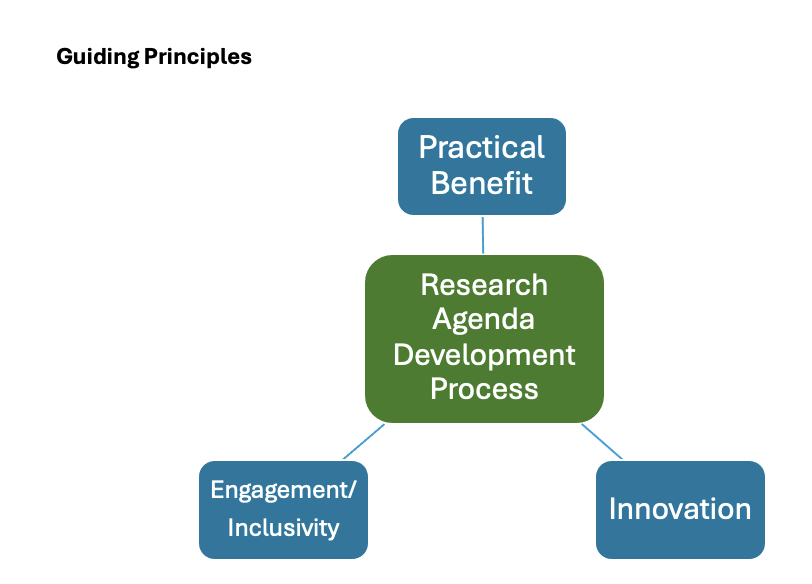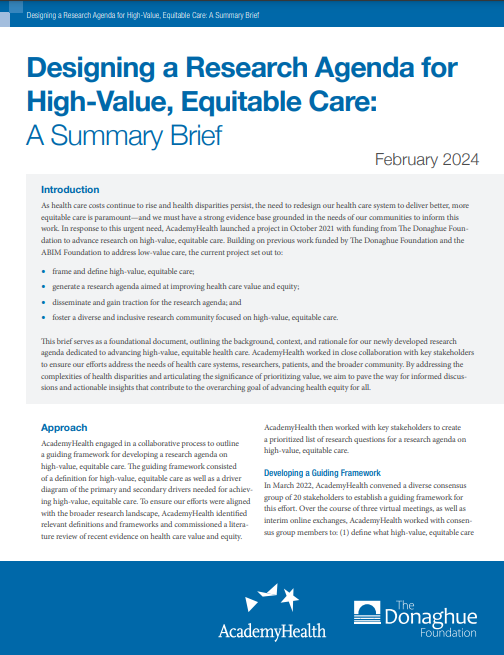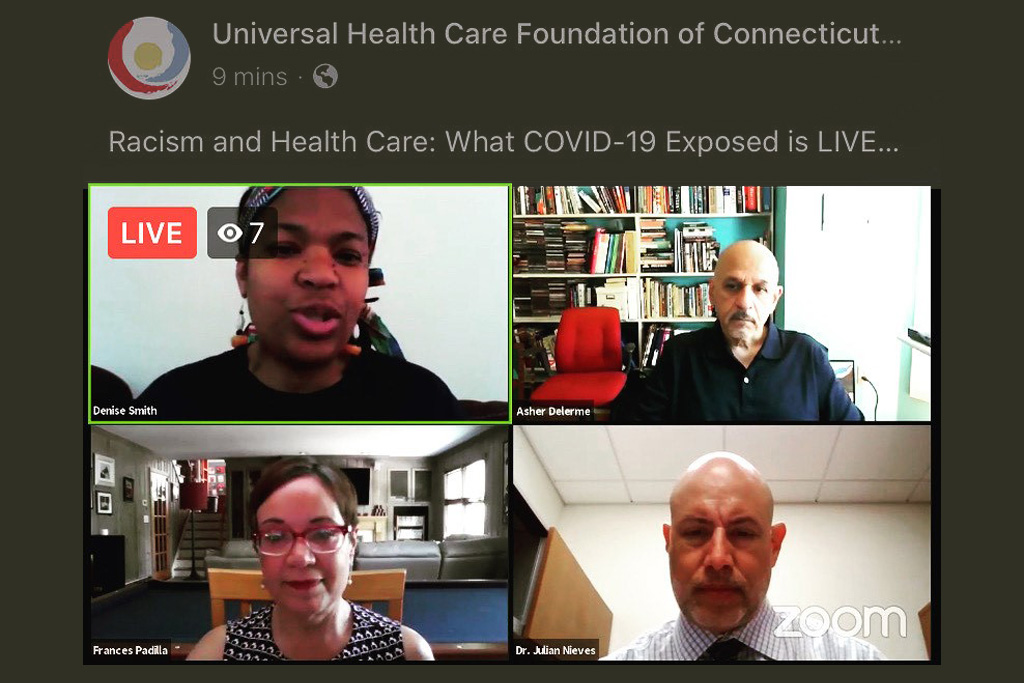Developing a Research Agenda on High-Value, Equitable Care: The Power of Being Practical, Inclusive, and Innovative
September 5, 2024

Despite concerted efforts to improve the health care system, patients continue to encounter considerable challenges in accessing affordable, quality care that is centered on and responsive to their needs. Ongoing research efforts have sought to better understand the myriad challenges in our complex health care system with an eye toward developing appropriate solutions. One such area, health care value—defined as the measure of what one receives in exchange for the money put into health care, has been a key area of inquiry. AcademyHealth, in collaboration with the ABIM Foundation and later with The Donaghue Foundation, has led initiatives to advance research on strategies for reducing low-value health care. Through this work and with input from key stakeholders, the focus of our work evolved to incorporate an emphasis on equity, as high-value care is impossible to achieve without it. Although there is a considerable evidence base in each of these areas independently, the combined concept of health care value and equity has not been widely studied. As such, in October of 2021, AcademyHealth set out on a collaborative journey to develop a research agenda for achieving health care that is both high-value and equitable.
In this blog, we describe key activities and takeaways from this work, highlighting the importance of an intentional process for setting the agenda for research on health care value and equity that was grounded in the needs of patients and communities. We convened diverse stakeholder groups to define high-value, equitable care, developed a driver diagram, conducted a literature review, and generated and prioritized research topics through interactive meetings and online processes to create a final research agenda. We further showcase the way this work aligns with the Foundation’s guiding principles, and the way in which those principles were integral to creating a meaningful and relevant agenda. Here, we discuss four of those principles: practical benefit, engagement, inclusivity, and innovation.

We’ll start with practical benefit. From the outset, we sought to develop an action-oriented research agenda aimed at advancing real, concrete change within our health systems in pursuit of high-value, equitable health care. The research questions developed outline what new evidence would be needed to inform meaningful choices and actions by decision-makers within health systems toward improving health and well-being.
We also considered the actions that would need to be taken by stakeholders who drive health system behavior, such as federal and state policymakers, regulators, and health plans. Importantly, we recognized that health systems have an opportunity and responsibility to go beyond clinical services delivery to advance the overall health and wellbeing of communities. However, we also acknowledged that this does not encompass all evidence that others need to improve population health and drive equity within communities.

Moving to engagement and inclusivity… The importance of these two principles in our work and to the final product cannot be overstated. To develop the kind of research agenda that would reflect the varied needs of our diverse population, we focused on bringing in different perspectives and providing opportunities for their engagement throughout the duration of the process. So, for us, engagement and inclusivity were two sides of the same coin. We were intentional about involving a broad range of stakeholders, including those with whom we had never worked, while also building in sufficient time to incorporate their ongoing feedback. Early in the proposal process, we were fortunate to receive encouragement from the Foundation to further expand our outreach efforts to ensure wider representation and to consider the additional time that may be needed to accommodate this expansion. So, we extended our timeframe, increased the number of consensus group members, and shared the draft definition of high-value, equitable care and accompanying driver diagram with our Research Community on High-Value, Equitable Care for their feedback. In the end, we engaged stakeholders through multiple rounds of revisions, iteratively incorporating the feedback received, and arriving at an agenda for advancing research on high-value, equitable care that will yield evidence that is responsive to community needs, culturally humble, and actionable for frontline decision-makers.
Finally, when considering innovation, we wanted to leverage technology to optimize our inclusivity and engagement efforts. Using an online platform, Codigital, we facilitated an asynchronous prioritization process for establishing the final research agenda which allowed participants to engage at levels and times that were best for them. Incorporating this approach into our suite of engagement methods enabled us to achieve both breadth and depth of engagement, maximizing the number and diversity of participants offering feedback and ensuring their voices were heard.
On behalf of our team, we are excited to present this research agenda, which emphasizes the critical importance of health care that is simultaneously equitable and high-value. AcademyHealth’s shared embrace of the principles of practical benefit, engagement, inclusivity, and innovation enabled the development of a research agenda that can generate the evidence base necessary to achieve health care that is accessible, equitable, and of the highest value for everyone.
We hope you will find the agenda relevant and helpful to your own work. View the research agenda here.
Back Issues

The Room Where Research Happens: How I Became Part of a Group that Was Open to Research the Topic that Few Seemed Willing to Discuss















